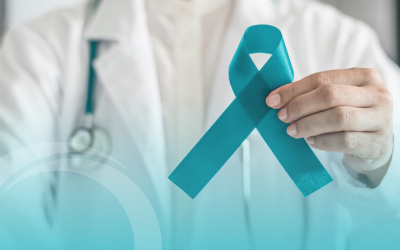Understanding Cervical Cancer: A Preventable and Treatable Condition
Cervical cancer impacts thousands of women each year, with approximately 13,000 new cases diagnosed annually in the United States. Tragically, the disease claims around 4,000 lives each year. However, prevention, early detection and treatment can make a significant difference, as cervical cancer is both a preventable disease and is highly treatable when caught early.
Understanding Cervical Cancer: Prevention, Diagnosis and Treatment
Q: What causes cervical cancer?
A: The primary cause of cervical cancer is a persistent infection with HPV (human papillomavirus), the most common sexually transmitted infection (STI). HPV can integrate into the DNA of cells in the cervix and over time cause pre-cancer and cancer. The Centers for Disease Control and Prevention (CDC) estimates that almost everyone will get at least one type of HPV within a few years of becoming sexually active. In most instances, the infections disappear on their own within two years. If HPV infection persists, then the risk of cervical cancer increases. Cervical cancer can be prevented with HPV vaccination and routine screening.
Q: What increases my risk for cervical cancer?

A: Besides HPV infection, several factors can raise your risk:
- Smoking and use of any form of tobacco products.
- Having HIV or another condition that weakens the immune system.
- Taking medications that suppress the immune system.
- Not undergoing regular pap smears, or not following-up after an abnormal pap smear.
Q: What are the symptoms of cervical cancer?
A: Early cervical cancer and precancerous conditions often have no symptoms, which underscores the importance or routine screening. As the cancer grows, symptoms may include:
- Abnormal vaginal bleeding (e.g. bleeding in between periods or bleeding after intercourse).
- Unusual vaginal discharge.
- Pelvic pain.
- Abnormal vaginal odor.
Steps to Prevent Cervical Cancer
1. Get the HPV Vaccine: The HPV vaccine is a powerful tool in preventing cervical cancer. HPV vaccines are among the most effective vaccines available worldwide. It is recommended for all children at ages 11 or 12, with two doses. Those who begin the vaccination later (ages 15–45) will need three doses. The vaccine can significantly reduce the risk of HPV-related cancers. It is even more effective at preventing HPV-related cancers if given prior to exposure to HPV.
2. Regular Screenings: Screening tests like Pap smears and HPV tests are crucial for early detection:
- Ages 21–29: Pap test every three years if results are normal.
- Ages 30–65: Choose between a Pap test every three years, an HPV test every five years, or both every five years if results are normal.
- Over 65: Women with a history of normal results may stop screenings, but it is best to consult your healthcare provider.
3. Practice Safe Sex: While condoms don't completely prevent HPV transmission, they significantly reduce the risk.
Expert Care at Overlake Cancer Center
If you or someone you know is diagnosed with cervical cancer, Overlake Cancer Center, in collaboration with Fred Hutchinson Cancer Center, offers comprehensive care under one roof. Our state-of-the-art facilities are staffed by experienced healthcare professionals that include a gynecologic oncologist, radiology oncologists and medical oncologists, as well as nurses, social workers, nutritionists and many other support personnel. These experts work together as a team, collaborating to develop personalized treatment plans that give each patient the best opportunity for a good outcome.
For more information about cervical cancer treatment at Overlake, call us at 425.635.3400.









